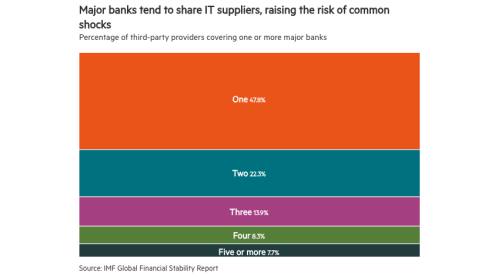All of Canada’s largest banks showed a good start to the year in their first quarter 2021 results, each recording quarter-on-quarter growth in net income and, significantly, year-on-year growth compared with the first quarter of 2020.
For example, RBC, the largest bank by capital, had net income of $3.246bn in the first quarter of the 2020 fiscal year, which grew by 19% to $3.847bn in the first quarter of 2021. TD Bank saw year-on-year growth of 10% from $3.072bn to $3.38bn. Scotiabank saw smaller percentage growth year-on-year of 3%, from $2.344bn to $2.418bn. But it was fourth largest lender Bank of Montreal which saw the largest percentage growth: 26% from $1.617bn to $2.038bn.
The bounceback means that each of the five banks performed better in the three months up to January 2021, the start of their 2021 fiscal year, than in the period before the widespread outbreak of Covid-19 in 2020.
But questions remain about whether this growth trajectory can continue.
Government stimulus programmes have been credited with keeping the country’s economy relatively buoyant during this period and allowing both consumers and business to continue repaying loans.
To date, although there has been an increase in non-performing assets, this has remained small especially compared with worst-case scenarios. All five banks made substantial provisions for loan losses in 2020. RBC and TD bank saw increases in their allowances for loan losses from $2.35bn and $3.37bn in 2019 to $4.27bn and $6.28 in 2020 respectively.
The coming months could be crucial. Canada is currently grappling with a third wave of the Covid-19 infection, which could affect its economic outlook. However, central bank governor Tiff Macklem has recently cut the country’s central bond purchased programme and hinted at possible interest rate increases in 2022, earlier than anticipated, on the basis of expected economic growth and inflation increases.






